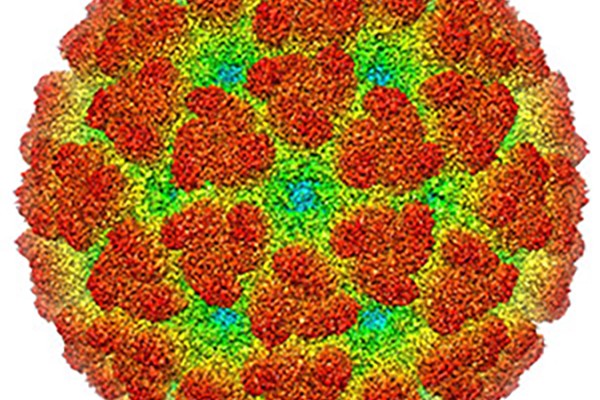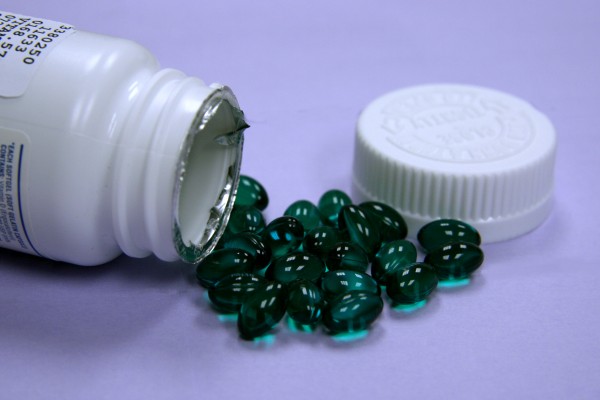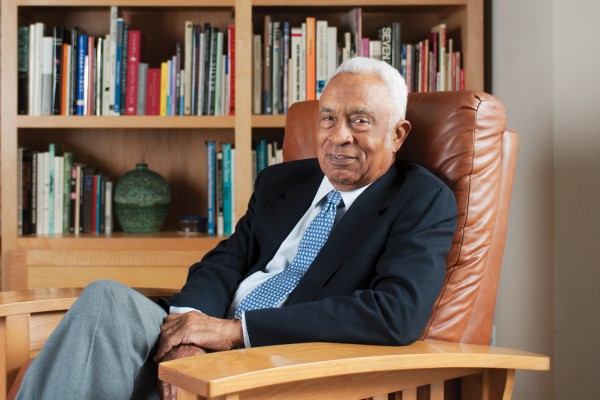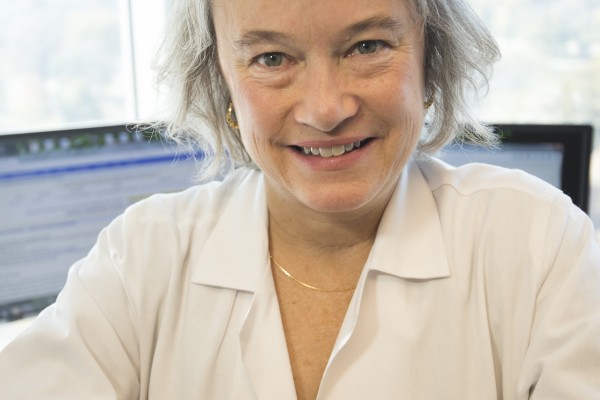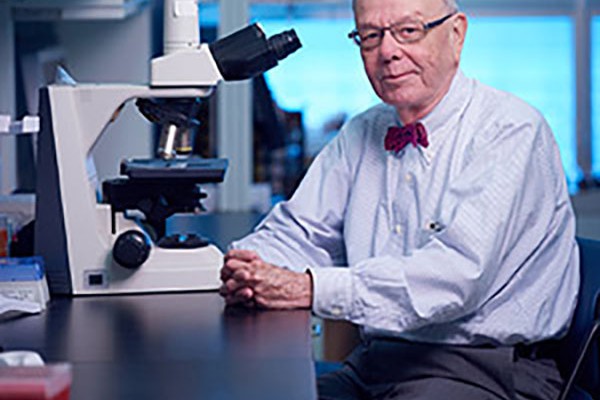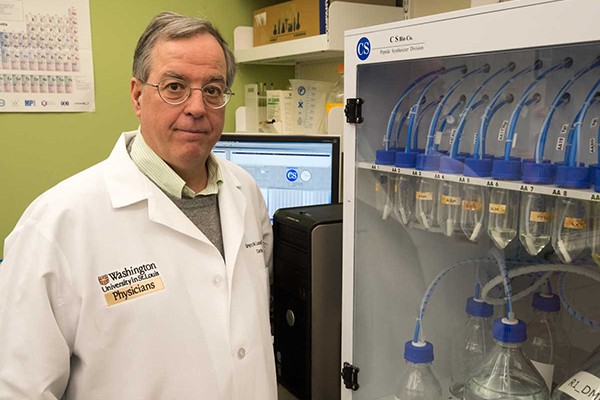Research points to development of single vaccine for Chikungunya, related viruses
Researchers at Washington University School of Medicine in St. Louis have identified “broadly neutralizing” antibodies that protect against infection by multiple, distantly related alphaviruses – including Chikungunya virus – that cause fever and debilitating joint pain. The discovery, in mice, lays the groundwork for a single vaccine or antibody-based treatment against many different alphaviruses.
Vitamin D relieves joint, muscle pain for breast cancer patients
High-dose vitamin D relieves joint and muscle pain for many breast cancer patients taking estrogen-lowering drugs, according to a new study from Washington University School of Medicine in St. Louis.
First in class
Though he doesn’t consider himself a pathfinder, James L. Sweatt helped integrate some of the country’s top institutions, including Washington University School of Medicine.
Investing in the future
Leading Together benefits our community, our nation and our global society.
Washington People: Kathy Grange
For Kathy Grange, MD, every day is a professional adventure, solving medical mysteries and pursuing diagnoses of rare diseases. A professor of pediatrics, Grange is director of the Division of Genetics and Genomic Medicine in the Department of Pediatrics.
Burroughs Wellcome Fund awards two researchers $700,000 each
The Burroughs Wellcome Fund has recognized two researchers at the School of Medicine for their studies in pulmonary medicine and cardiology. The two — among 14 scientists selected nationally to receive the BWF 2015 Career Award for Medical Scientists — are Jennifer Alexander-Brett, MD, PhD, and Kory J. Lavine, MD, PhD.
Kulkarni named editor-in-chief of Cancer Genetics journal
Shashikant Kulkarni, PhD, an associate professor of pathology and immunology at the School of Medicine, has been named editor-in-chief of the journal Cancer Genetics.
Goodman appointed to City of St. Louis Board of Health and Hospitals
Melody Goodman, PhD, an assistant professor of surgery at Washington University School of Medicine and a research member of Siteman Cancer Center, has been appointed to the City of St. Louis Board of Health and Hospitals.
Unanue receives Sanofi-Institut Pasteur Award
Emil R. Unanue, MD, an internationally renowned immunologist at the School of Medicine, has received a Sanofi-Institut Pasteur Award for his invaluable contributions to the field of immunology. The annual awards honor scientists who have made outstanding contributions to biomedical research in fields that profoundly affect global health.
Scientists receive $13.7 million to develop new multiple myeloma treatments
Researchers at the School of Medicine have been awarded $13.7 million from the National Cancer Institute (NCI) to create new therapies for multiple myeloma, a cancer of the immune system. Led by Samuel Achilefu, PhD, (pictured) and Gregory Lanza, MD, PhD, at the newly created Center for Multiple Myeloma Nanotherapy, scientists will work to develop nanomaterials and drugs to treat the disease.
View More Stories
